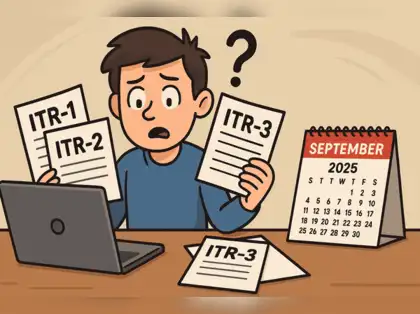The Benefits of SEO for Small Businesses
As a proficient SEO and high-end copywriter, we understand the significance of search engine optimization (SEO) for small businesses. In today’s digital age, having a strong online presence is crucial for success, and SEO plays a vital role in achieving that. In this article, we will explore the various benefits of SEO for small businesses and how it can help them outrank their competitors in search engine results.
Increased Online Visibility
One of the primary advantages of implementing SEO strategies for small businesses is the increased online visibility it provides. When potential customers search for products or services related to your business, you want to ensure that your website appears prominently in the search results. By optimizing your website with relevant keywords, meta tags, and high-quality content, you can improve your website’s visibility and attract more organic traffic.
Targeted Traffic
SEO allows you to target specific keywords and phrases that are relevant to your business. This means that the traffic you receive from search engines is highly targeted and more likely to convert into leads or sales. By understanding the search intent of your target audience and optimizing your website accordingly, you can attract visitors who are actively seeking the products or services you offer.
Cost-Effective Marketing
Compared to traditional marketing methods, SEO is a cost-effective strategy for small businesses. While paid advertising can be effective, it often requires a significant budget. SEO, on the other hand, allows you to organically rank higher in search results without the need for ongoing advertising expenses. By investing in SEO, small businesses can achieve long-term visibility and generate consistent traffic without breaking the bank.
Builds Credibility and Trust
When your website appears on the first page of search engine results, it automatically builds credibility and trust among potential customers. Users tend to associate higher search rankings with reputable and trustworthy businesses. By consistently appearing at the top of search results, you establish your small business as an authority in your industry, making customers more likely to choose your products or services over your competitors.
Improved User Experience
SEO is not just about optimizing your website for search engines; it also focuses on enhancing the overall user experience. Search engines consider factors such as website speed, mobile-friendliness, and easy navigation when determining search rankings. By optimizing these aspects, you not only improve your website’s visibility but also provide a seamless and enjoyable experience for your visitors. This, in turn, leads to higher engagement, lower bounce rates, and increased conversions.
Long-Term Results
Unlike other marketing strategies that may provide short-term results, SEO offers long-term benefits for small businesses. Once you establish a strong online presence and achieve high search rankings, it becomes easier to maintain and improve your position over time. With regular updates and ongoing optimization, you can continue to attract organic traffic and outrank your competitors, ensuring a sustainable flow of leads and customers.

In conclusion, implementing SEO strategies for small businesses can have a significant impact on their online success. By increasing visibility, targeting relevant traffic, and building credibility, SEO helps small businesses outrank their competitors in search engine results. The cost-effectiveness, improved user experience, and long-term results make SEO an essential component of any small business’s digital marketing strategy. Invest in SEO today and reap the benefits of increased online visibility and sustainable growth.
Frequently Asked Questions – Benefits of SEO for Small Business
1. What is SEO?
SEO stands for Search Engine Optimization. It is the process of optimizing a website to improve its visibility and rankings on search engine result pages (SERPs).
2. How can SEO benefit a small business?
SEO can benefit a small business in several ways:
Increased online visibility
Higher organic traffic
Improved brand awareness
Targeted audience reach
Cost-effective marketing strategy
3. Does SEO require a large budget?
No, SEO can be tailored to fit any budget. It is a scalable marketing strategy that can be adjusted based on the resources available to the small business.
4. How long does it take to see results from SEO?
The time it takes to see SEO results can vary depending on various factors such as the competitiveness of keywords, website age, and the quality of SEO efforts. Generally, it can take a few months to start seeing noticeable improvements.
5. Can I do SEO for my small business website myself?
Yes, you can learn and implement basic SEO techniques yourself. However, for more effective and efficient results, it is recommended to hire a professional SEO agency or specialist.
6. Is SEO only for large businesses?
No, SEO is beneficial for businesses of all sizes. It can be especially advantageous for small businesses as it helps level the playing field and compete with larger competitors in the online space.
7. What are some common SEO strategies for small businesses?
Some common SEO strategies for small businesses include:
Keyword research and optimization
On-page optimization (meta tags, headings, content)
Building high-quality backlinks
Local SEO optimization
Creating valuable and shareable content
8. Can SEO help increase website conversions?
Yes, SEO can indirectly help increase website conversions by driving targeted traffic to your website. Once visitors land on your site, it is important to have a user-friendly interface, clear call-to-actions, and engaging content to maximize conversions.
9. How often should I update my SEO strategy?
SEO is an ongoing process, and it is recommended to regularly review and update your SEO strategy to adapt to changing search engine algorithms, industry trends, and competition.
10. Are there any risks associated with SEO?
While SEO is generally safe and beneficial, there are some risks involved if improper techniques are used. These risks may include penalties from search engines or damage to your website’s reputation. It is crucial to follow ethical SEO practices and avoid black hat techniques.




